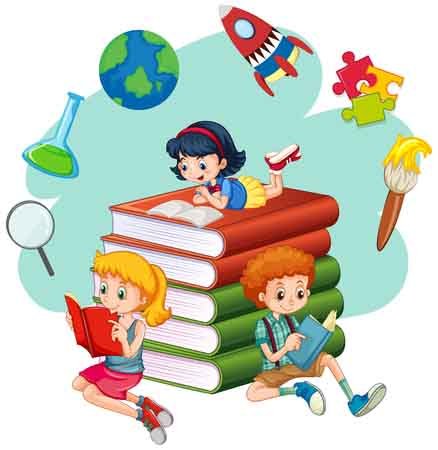Book Club

When a child reads, he/she exercise the comprehension abilities and analytical abilities. It fires up the child’s imagination and stimulates the memory centres of the child’s mind. It helps recall information as well as stabilize his/her emotions. The importance of a reading habit is that it strengthens mental muscles
The Top Ten Benefits of Reading for Children
- Their vocabulary is larger and more extensive.
- They perform better academically.
- Their imagination can run wild.
- Their creativity skills develop.
- They develop empathy.
- Tricky words-reading and spelling
- Difference between letter names and letter sounds
- Reading words, phrases and sentences
- Reading decodable readers and books
- Reinforcement of letter sounds using literacy games and activities
- Periodic assessment and review
What is importance of reading?

Early reading with your child is a true one-on-one opportunity for children to communicate with their parents and parents to communicate with their children. It allows children to grow their vocabulary skills with exposure to new words and listening skills they develop from hearing someone read to them that become vital to their academic success.
Studies have shown that “the more words that are in a child’s language world, the more words they will learn, and the stronger their language skills are when they reach kindergarten, the more prepared they are to be able to read, and the better they read, the more likely they will graduate from high school” (PBS.org).
Numerous studies have shown that students who are exposed to reading before preschool are more likely to do well when they reach their period of formal education. According to a study completed by the University of Michigan, there are five early reading skills that are essential for development. They are:
- Phonemic awareness– Being able to hear, identify, and play with individual sounds in spoken words.
- Phonics– Being able to connect the letters of written language with the sounds of spoken language.
- Vocabulary– The words kids need to know to communicate effectively.
- Reading comprehension– Being able to understand and get meaning from what has been read.
- Fluency (oral reading)– Being able to read text accurately and quickly.
